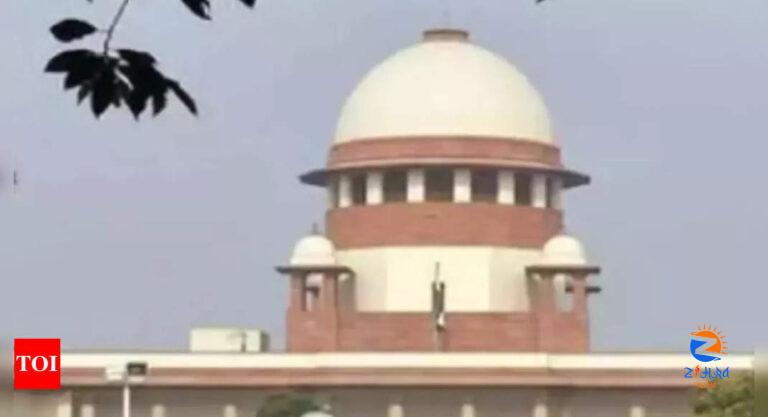
[ad_1]
What made a bench of Chief Justice N V Ramana and Justices Surya Kant and Hima Kohli mull the need for reviewing the judgment was a petition filed by one Sher Khan, who raised the plea of juvenility for the first time 22 years after a gang-rape incident at Dadri in Uttar Pradesh for which he was convicted and sentenced to life imprisonment along with others.
At the receiving end of a flurry of questions from the bench was advocate Rishi Malhotra, who kept reiterating that the SC itself has settled the issue in the 2012 judgment and that a convict would not be time-barred to raise the plea of juvenility. The bench asked, “Does that mean an accused who did not even whisper that he was a juvenile at the time of committing an offence for close to two decades would be permitted to raise it even after the final judgment from the SC upholding the conviction and sentence?”

Justice Surya Kant was concerned as both the Alllahabad HC and Gautam Budh Nagar trial court found that the accused belonged to influential families in the village and that the rape survivor was from a poor family. The bench said, “Were you not aware of your age at any point of time during the last two decades?”
What the SC bench feared is that influential accused can use their money and muscle power to obtain age certificates to claim juvenility at the time of the crime to get a very lenient sentence even in gruesome or heinous crimes, as happened in the Nirbhaya rape-murder case.
Malhotra referred to the birth certificate and the school-leaving certificate, both issued in 2018, to plead that the convict was a juvenile needing an inquiry to establish the fact as mandated under the Juvenile Justice (Care and Protection) Act.
But the bench said the certificates were obtained in 2018 and the birth certificate was issued on the recommendation of the village panchayat. It asked the petitioner to file the original recommendation letter from the village panchayat about the age of the convict, based on which the authorities had issued the age certificate. Justice Kant said the SC in many cases has refused to rely on the evidentiary value of a school-leaving certificate to prove the age of a person.
The SC in Abuzar Hossain alias Gulam Hossain vs State of West Bengal had in 2012 ruled that “a claim of juvenility may be raised at any stage even after the final disposal of the case. It may be raised for the first time before this court as well after the final disposal of the case. The delay in raising the claim of juvenility cannot be a ground for rejection of such claim. The claim of juvenility can be raised in appeal even if not pressed before the trial court and can be raised for the first time before this court though not pressed before the trial court and in the appeal court”.
Section 9(2) of the Juvenile Justice (Care and Protection of Children) Act, 2015 contemplated that whenever a claim of juvenility is raised before any court, the court shall make an inquiry and take such evidence as may be necessary.
[ad_2]